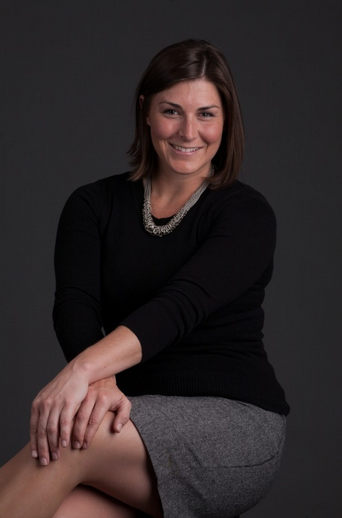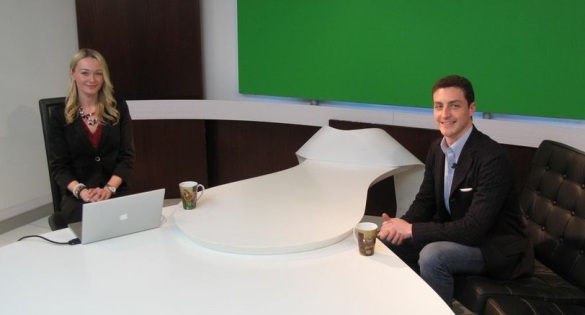Interview with Lucas Fuksa, founding partner of Fuksa Khorshid, LLC and president of PAL-PAC
By: Ania Jablonowski

Lucas Fuksa, founding partner of Fuksa Khorshid, LLC and president of PAL-PAC
Were you born in the US or Poland?
I was born in Sanok, Poland and came to the US when I was four and a half years old. My father is originally from Kraków. First we moved to Austria as refugees for over a year, I was three years old when we left Poland. Living in Austria includes some of my earliest memories. I can picture the hotel that we stayed at near a farm. I remember how much it snowed, and playing in the snow with my older brother. We celebrated Christmas there, which was actually pretty terrifying for me and my brother. We have a photo with a scary looking Santa, he had a tall hat with a cross, and was followed by these little men dressed up as furry animals with large teeth and horns on their heads. They each carried a large stick. I’m sure there is a fable that goes with it, but we were too young to understand. We didn’t have any family in Austria, it was a temporary stop to get you over to America.
How and why did your family come to the US?
My father despised living in Communism. Living through it shaped his political views today. He cherishes freedom, capitalism, and democracy. This greatly influenced me too. We came back to visit Poland for the first time in 1989. I can still recall it. The stores had empty shelves, my Babcia would stand in line for bread at 4am and there were only small rations. It was a completely different world from what we had in America. We never saw any brand names or choices of items. There was no capitalism, no competition. As a child, I distinctly remembered that nothing had colored packaging; it was a government grocery store.
When we moved to the US, my dad’s distant cousin Henry lived in Park Ridge, IL and we moved into his basement. He was our only contact in Chicago. Henry’s family didn’t even speak Polish, so our family started to learn English right away. After a few months, we moved to an apartment that Henry owned by Central and Foster Avenue in Chicago.
How would you compare your childhood to your peers’ experiences growing up?
My American friends had a different attitude about certain things. They didn’t understand what it meant to be wasteful. After seeing what was happening in Poland in 1989, I was very aware of differences in America. I had a hard time stepping away from my dinner plate unless I ate all my food, I hated being wasteful. Even with my lunch – I remember when my mom packed me sardines for lunch and some American friends were grossed out and dared me to eat them. Someone said they would give me $5 if I ate the whole can, and I said “of course I am going to eat it – that’s my lunch!” Needless to say, that was the easiest $5 I ever made.
I never really had an accent growing up. It feels like I started speaking English within a few days of moving to the US. But I did feel a bit embarrassed speaking Polish to my parents in the grocery store and public places when I was younger. I would always keep my voice down. Looking back, it was silly. My parents would hassle me and say I should be proud that I could speak Polish. Of course now I appreciate it.
My brother and I entertained ourselves by playing outside a lot. Since our parents couldn’t afford the same toys that our American friends had, we would ride our bikes in empty parking lots and make forts out of cardboard boxes.
More so than my experience being different from my American peers, I would say my father’s experience was very different from my friends’ parents. In Poland, my dad was an educated engineer. After moving here, he couldn’t find a job as an immigrant, so he sold sandwiches. He woke up at 3am, got to work at 4am, and he would bring his food truck to wherever construction workers were, selling sandwiches and coffee. During this time, he was also constantly applying for engineering positions. He was discriminated against by being Polish, people would call him names, but he never thought much of it. He just thought, “that’s life, brush it off and move on.” He ended up landing an engineering position in Wisconsin. We stayed out there during kindergarten through the beginning of third grade.
What brought you back to Chicago after Wisconsin?
My mother wanted to come back. By then, all her friends from Poland started moving to Chicago too, and she missed being around them. It was great, because all of a sudden we got all these “aunts and uncles,” like all Polish families do. You’re not related, and you don’t realize until you’re older that they are actually your mom’s friends – but you still call them “Ciocia and Wujek” as an adult.
For my brother and I, it was coming back totally fresh. We didn’t know anyone. The other kids knew we were Polish. They would hear me speak Polish to my parents – that was strange for them. There wasn’t a single kid at our school that was Polish, outside of my brother and I. We were also seen as even more different because we were technically from Wisconsin. We made friends pretty quickly and didn’t find it difficult to assimilate. I considered myself an American. I didn’t really have a lot of Polish friends growing up, because at that time, there wasn’t a big Polish community where we lived.
Did you attend Polish school?
We didn’t start Polish school until I was in fifth or sixth grade. My brother actually attended with me, in the same class. Mind you, he is three years older and was in junior high already. Neither of us felt like we belonged; it felt like everyone there already knew each other. A few times, we actually waited until our parents left and walked down the street to go to Sportsmart. We got away with it until one day the teacher said something to our parents about being absent. We really didn’t make any friends in Polish school to the point of hanging outside of class. Eighth grade was our last year. I regret not being there longer though. It would have been a good opportunity to better my grammar and writing.
How were you perceived by Poles when you would go back to visit Poland?
My brother and I stood out as Americans when we would travel. We looked American with our Air Jordans, Bulls gears, and skateboards. I don’t even think anyone had a skateboard where we were at, and we would just ride down the streets with people staring at us.
How did you get involved with Polish organizations?
It wasn’t until after I graduated law school that I really started becoming involved in Polish organizations. Since my parents mostly found their community between friends, family, and church, they didn’t participate in the Chamber, etc.
I started working at a successful law firm in McHenry county. It was a great experience, and I was able to dabble in different areas of law. We had a few Polish clients, since Algonquin had many Polish residents. Though my “professional Polish” wasn’t perfect, I began communicating on a business and legal level. That helped a lot. I became involved with the Polish community in about 2006 when I was 28 years old and moved back to the city to start my practice with a partner. As someone new starting a law firm, I thought it would be great to get some Polish speaking clients and directed my efforts to that market. I also wanted a deeper involvement in the community beyond the firm.
One day, my brother’s wife wanted to introduce me to Stan Nowak, who was the President of a Polish business chamber. Stan’s chamber joined the Polish-American Chamber of Commerce, where I met Henry Kazmierczak, the President of PACC at the time. Both Stan and Henry became my mentors. One thing that I feel I had an advantage with in my career was the opportunity to learn so much from successful people that took me under their wings. My father didn’t have that when he came here – he just had to figure it out on his own. When Henry’s term as President ended, he suggested that I give it a try. He liked the fact that I was a young, Polish attorney with my own business. I was honored to take on the position. As President, I wanted to change the dynamic a bit by integrating more American businesses into the Chamber. I also focused on strengthening our relationship with Poland and not just targeting businesses in the Chicago area. This led to a lot of international initiatives among the PACC and various Polish businesses and agencies that aimed at exploiting business opportunities here and in Poland.
Networking with Poles in the Chicago community led me to meet connect with Poland in a great way. I met with the [former] Minister of Foreign Affairs, Radosław Sikorski, Polish delegates, leaders, prominent officials. It really sparked my interest in politics. There was a lacking political representation in the Polish-American community.
In 2013, I joined Arie Zweig’s efforts in creating an organization for our voices to be heard. The Polish-American Leadership Political Action Committee (PAL-PAC) was formed for the purpose of addressing social, civic, and business interests of the Polish-American community in the United States. Three general initiatives are utilized to accomplish this goal: education, issue advocacy, and representation. Together, we are able to show politicians that Poles have a strong voting block.
Do you have any advice for today’s young Polish-American business professionals?
Get involved in the Polish-American community as much as you can.There are a lot of great Polish organizations here in Chicago that can help you connect with your Polish roots. If you are looking for a job, looking for friends, or wanting to expand your business, don’t forget that you can find a lot of solutions through the Polish-American community. As Polish-Americans, we have to realize that we have a lot of potential as a result of the strong principles we share, but we can only succeed and make an impact if we support each other and work together.



















